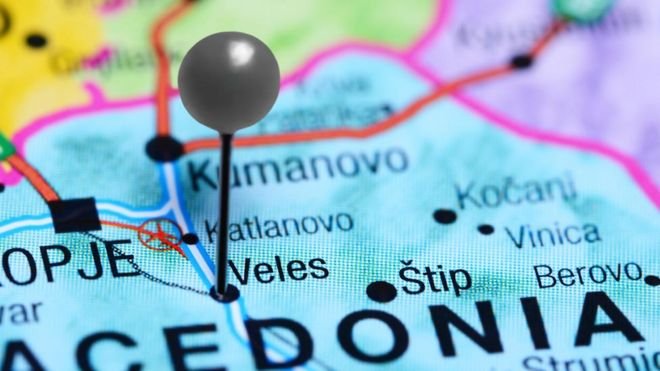
In record time, the phrase morphed from a description of a social media phenomenon into a journalistic cliche and an angry political slur. How did the term "fake news" evolve - and what's next in the world of disinformation?
It was mid-2016, and Buzzfeed's media editor, Craig Silverman, noticed a funny stream of completely made-up stories that seemed to originate from one small Eastern European town.
"We ended up finding a small cluster of news websites all registered in the same town in Macedonia called Veles," Silverman recalls.
He and a colleague started to investigate, and shortly before the US election they identified at least 140 fake news websites which were pulling in huge numbers on Facebook.
The young people in Veles may or may not have had much interest in American politics, but because of the money to be made via Facebook advertising, they wanted their fiction to travel widely on social media. The US presidential election - and specifically Donald Trump - was (and of course still is) a very hot topic on social media.
The city getting rich from fake news
And so the Macedonians and other purveyors of fakery wrote stories with headlines such as "Pope Francis Shocks World, Endorses Donald Trump for President" and "FBI Agent Suspected in Hillary Email Leaks Found Dead in Apparent Murder-Suicide".
They were completely false. And thus began the modern - and internet-friendly - life of the phrase "fake news".

Hi! I am a robot. I just upvoted you! I found similar content that readers might be interested in:
https://www.it-aid-centre.com/2018/01/21/fake-news/
Thanks